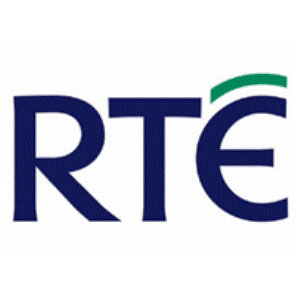So the Irish broadcast regulator finds itself on the wrong side of potential action on foot of its criticisms of a report on last year’s difficulties on the running of the Frontline programme.
Rob Morrison, the report’s joint author – and the person threatening the BAI with legal action – chaired a panel consisting of a range of individuals from outside broadcasters to examine where the RTE Frontline production team departed from regular practice elsewhere. Without reading the draft report it is impossible to tell where the BAI’s compliance committee is coming from on this.
The committee argues that the working paper should be published. That’s unlikely to happen at any point, since as Patsy McGarry points out in the Irish Times:
RTÉ indicated its willingness to publish the document provided those interviewed for it agreed to waive a guarantee of confidentiality. Mr Morrison said that some of those interviewed had already said they were not willing to forfeit that confidentiality.
All politicking aside Morrison’s report throws a critical light on some of the poor practices of the Frontline production team. The stand out for me relates to a broader point I’ve made in the past, which is that in general RTE Frontline audiences are encouraged to make statements rather than ask questions.
This was a key qualitative shift between the old Questions and Answers programme, the programme Frontline was designed to replace. Rather dangerously in my view, this new ‘habit’ has tended to place the production team on the side of the mob and against the guest speakers. Since its very earliest days also coincided with massive shocks to the Irish political and economic system it has made, at times, for some major risk taking.
Morrison’s report also notes the difficulty the production staff had in managing the change made necessary by the election (and much against audience expectations) from gathering statements from the audience to collecting their questions. Moreover the demand was very short questions, which meant in some cases they had to be substantially re-written and handed back to the questioner in a different format.
The other relevant note highlighted in the report is the complete absence of any direct questioning from the audience of the one of the two frontrunners (An tUachtarain himself) Michael D Higgins. Noel Whelan notes:
The RTÉ report makes much of the fact that Higgins was still “challenged” because he was asked questions by Kenny. Reviewing the programme, one sees that dozens of such follow-up questions from Kenny were directed at Gallagher, all of them sharp, some of them snide. Only a handful of such questions were addressed directly to Higgins, including the soft-ball “Do you think you made a mistake in staying so presidential”.
Hmmmm…
It’s important to understand that the TORs for Morrison’s panel and its final report where almost entirely confined to matter of questions and how the programme handled this aspect of production. There is no mention of the way in which production staff on Frontline and subsequent programmes handled the fall out of Tweetgate, for instance.
Nor on how RTE handled its responsibilities corporately during what remained of the campaign. Whelan again:
When I worked in politics I understood that for all election and referendum campaigns RTÉ had a tough steering committee rigorously monitoring coverage to ensure balance across the station’s various programmes and platforms.
You can imagine my surprise, therefore, when told this week by RTÉ that the steering group did not meet at all on the days between the Frontline debate and the commencement of the moratorium on election coverage. Instead it was left to the current affairs section itself, headed as it was by the same personnel responsible for the unbalanced programme, to review the programme for balance.
Mick is founding editor of Slugger. He has written papers on the impacts of the Internet on politics and the wider media and is a regular guest and speaking events across Ireland, the UK and Europe. Twitter: @MickFealty
Discover more from Slugger O'Toole
Subscribe to get the latest posts to your email.

